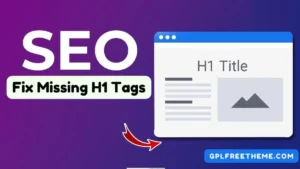Web facilitating is a critical part of running a site, as it can fundamentally influence the webpage’s presentation, speed, and by and large client experience. With so many web facilitating suppliers accessible, picking the best one for your needs can challenge. In this article, we will audit and look at the absolute most famous web facilitating suppliers, including NameCheap, Dreamhost, Hostinger, A2 Hosting, Cloudways, WP Engine, and Flywheel’s.
1. NameCheap
Hosting services are typically classified into three categories: budget, standard, and premium. Let’s start by discussing budget hosts, and there’s no better host to begin with than Namecheap. I have been using Namecheap for all of my domain names for many years, and when it comes to domains, I highly recommend them. Additionally, I have had the pleasure of using Namecheap for web hosting for the majority of my WordPress sites, and it is one of the best values you can find. You can purchase hosting from Namecheap. Now, I didn’t say it’s the best quality you can buy, but if you’re looking to get your website up and running at an affordable price, Namecheap is undoubtedly my top web host recommendation.
![Best 7 WordPress Hosting Comparison [2020]](https://gplfreetheme.com/wp-content/uploads/2020/07/Namecheap-1024x718.png)
Namecheap presents two hosting solutions for WordPress: Shared Hosting Plans and EasyWP Managed WordPress Plans, which offer significantly different experiences. Starting with the Shared Hosting Plans, for just $2.88 per month, you can acquire a shared hosting account that allows you to host up to three websites with 20GB of storage. Namecheap provides a standard cPanel hosting experience, which is a widely used industry-standard control panel. Although it may seem cluttered initially, it is simple to navigate, well-organized, and user-friendly.
Although it’s possible to create your website for $2.88 per month, it is highly recommended that you choose the Stellar Plus plan, which includes one significant feature: daily automated backups. You’ll discover in this comparison that automated daily backups are crucial to me when selecting a web host. If you’re hosting a WordPress website, it’s crucial to back it up on a regular basis. This is because plugins can sometimes malfunction and corrupt the entire WordPress installation or a WordPress update might fail. Having that daily backup ready to restore with one click is essential to avoid a massive headache.
Trust me when I say this, I’ve been there. For $4.88 per month, Namecheap’s Stellar Plus plan includes daily automated backups, simple one-click restoration, and support for an unlimited number of websites. However, the only disadvantage, which is a significant one, is that backups are done on an account level rather than a website level.
In other words, if you have three or four WordPress sites hosted on your account and you use the one-click restore option, you will be rolling back all of the websites on your account, not just the one that has been impacted. The only way to avoid this is to download the backup file, then search through the massive zip file, locate the correct website folder, and re-upload it to the server, which is not an enjoyable task.
![Best 7 WordPress Hosting Comparison [2020]](https://gplfreetheme.com/wp-content/uploads/2020/07/namechaep-2-1024x718.png)
As mentioned earlier, Namecheap has another hosting option for WordPress called EasyWP Hosting, which is a great choice if you want the simplest way to get started with WordPress. The setup process is very easy – you just need to click a few buttons, and your WordPress site will be installed for you.
However, I would only recommend EasyWP if you absolutely need the simplest WordPress installation experience. The reason for this is that EasyWP does not offer an automated backup solution, so you will need to find a WordPress plugin to handle that for you, which can add to the cost and complexity of your site.
It’s worth noting that installing WordPress on the Standard Shared Hosting plans is not difficult, and it’s still completely automated. If you need any assistance, Namecheap’s support team can guide you through the process.
When it comes to support, Namecheap does offer 24/7 live chat support, but it’s not the best quality. Chat reps can take around 15 to 20 minutes to respond, and while they will eventually help you fix the issue, it’s not the quickest response time.
Uptime and reliability have also been an issue with Namecheap in the past, although I haven’t experienced any problems in the last few months. However, last year, my site experienced regular 15-minute downtime, which was unacceptable. This is why I want to emphasize that Namecheap is a budget web host – you get what you pay for. If you need hosting to launch your blog or company site, Namecheap can get the job done, but keep in mind the limitations and potential issues that may arise.
2. Dreamhost
The next affordable web host I’d suggest is Dreamhost. When comparing Dreamhost to Namecheap, Dreamhost appears to be more refined, and their support is of higher quality. For $4.95 per month, you can avail basic shared hosting, and if you opt for three years of basic hosting, it’ll cost you $93.24. Dreamhost uses a proprietary management panel that is extremely simple, to the point of being too simple for my liking. It’s not easy for me to locate what I’m looking for because it lacks the multitude of icons and options that I’m used to seeing in cPanel, which I’ve worked with for many years.
![Best 7 WordPress Hosting Comparison [2020]](https://gplfreetheme.com/wp-content/uploads/2020/07/dreamhost-1024x526.png)
Moving on to Dreamhost’s backup system – they offer up to two weeks of daily backups for their basic shared hosting plan. However, the restore process is limited to three options: the most recent backup, a mid-range backup, or the oldest backup. While their backup system does make backups per domain name, unlike Namecheap, there is still a big disclaimer at the top saying that they do not guarantee data backups. This leaves you with two options: relying on Dreamhost for backups or finding a third-party solution, such as a WordPress plugin.
On the support side, Dreamhost provides high-quality assistance compared to other budget hosts. However, their proprietary management panel may be too simplistic for some users who are used to seeing more icons and options on traditional panels like cPanel. When it comes to performance, Dreamhost fares well with fast loading times, making it a solid option for those looking for affordable and reliable hosting solutions.
![Best 7 WordPress Hosting Comparison [2020]](https://gplfreetheme.com/wp-content/uploads/2020/07/Dreamhost-shared-1024x785.png)
When it comes to support, Dreamhost is slightly ahead of Namecheap in my experience. Their live chat is available seven days a week from 5:30 a.m. to 9:30 p.m. Pacific Time, which is pretty good for a budget hosting provider. While it’s not 24/7, I think the support team is generally friendly and helpful.
Dreamhost is a good option for those who prioritize support but are still on a tight budget. Their basic shared hosting plan starts at $4.95 a month, and you can get three years of hosting for $93.24. The performance is also pretty solid. However, the backup solution is not great, and there are no guarantees about keeping backups of your data. So if you need reliable backups, you’ll have to rely on third-party solutions.
3. Hostinger
Let’s start with the final budget host – Hostinger. I’ll try to give you a brief overview of my experience with them. Hostinger offers cheap hosting options, especially during their promotional periods. However, don’t be tricked by the timer on their website that resets every time you visit. That’s just a marketing ploy to create a sense of urgency to buy. You’ll know you’re getting a decent sale when you can purchase 12 months of their cheapest plan for around $22 to $25 per year.
If your goal is to get the most affordable hosting, Hostinger offers web hosting for as low as $0.92 per month when you purchase four years of hosting. However, keep in mind that the pricing is heavily discounted for long-term commitments, and the renewal rates can be significantly higher.
![Best 7 WordPress Hosting Comparison [2020]](https://gplfreetheme.com/wp-content/uploads/2020/07/hostinger-1024x489.png)
So, let’s talk about the final budget host: Hostinger. My experience with Hostinger has been mixed. While you can find some really cheap hosting options on their site, be cautious of the countdown timer on their homepage, which is just a marketing tactic that resets every time you visit the page. A good sale, on the other hand, would allow you to purchase 12 months of the cheapest plan for about $22 to $25 per year. If your goal is to find the cheapest web hosting available, you can purchase four years of hosting for as low as $0.92 per month, which adds up to $44.19 for four years.
If you’re working on a basic website or a tinkering project that doesn’t require heavy hosting, Hostinger’s affordable plans might be perfect for you. However, keep in mind that Hostinger charges $0.95 per month if you want daily backups, which are not included in the hosting plan but are available as an add-on. Hostinger’s support is decent for the price, although you may need to wait a bit before being connected to someone. It’s a 24/7 live chat service, and once you’re connected, the response time is usually quite fast. Hostinger runs a highly customized version of cPanel, which has a lot of features.
![Best 7 WordPress Hosting Comparison [2020]](https://gplfreetheme.com/wp-content/uploads/2020/07/best-hosting-hostinger-1024x731.png)
If you need to manage your website files, Hostinger’s online file management system might not be the best choice. It’s pretty bad, to be honest. In this case, I suggest using an FTP Client instead. As for who should use Hostinger, I think it’s ideal for those who are looking for the cheapest web hosting possible and don’t mind paying for four years upfront. If you’re aware that you’re getting a decent budget hosting option but not something extraordinary, then Hostinger could be a good fit for you.
4. A2 Hosting
Let’s move on to the standard host category. When I was searching for a new host a few months ago, I discovered A2 Hosting. To test A2 Hosting, I examined two shared hosting plans: the basic plan, now called Startup, and the premium shared hosting plan, which is now known as Turbo Boost. Although A2 Hosting renamed its plans after I signed up, it appears that the features and offerings remain the same as the plans I tested. Both plans provide the classic cPanel hosting experience, similar to what you first saw with Namecheap, so you can expect a familiar management panel.
![Best 7 WordPress Hosting Comparison [2020]](https://gplfreetheme.com/wp-content/uploads/2020/07/a2-hosting-1024x499.png)
I do not recommend the A2 Starter web hosting plan. It is not worth the price in terms of the features provided. The plan costs $11 per month if paid monthly, and it offers a basic cPanel setup without anything special. Although the hosting quality is decent, I was disappointed to experience only a 98.88% uptime over my constant monitoring for eight weeks. I prefer hosts with at least 99.99% uptime.
A2’s backup system works similarly to Dreamhost with daily backups and a server rewind feature. However, they do mention that backups are provided on a “best effort” basis and recommend keeping your own backups. A2’s support is excellent when you do reach a representative. The representatives are knowledgeable and genuinely care about your needs. However, I found their estimated response times to be significantly inaccurate.
That said, I did have a much better experience with A2’s premium Turbo Boost shared hosting plan.
![Best 7 WordPress Hosting Comparison [2020]](https://gplfreetheme.com/wp-content/uploads/2020/07/2-1024x785.png)
In my assessment, I cannot recommend A2’s Starter plan as I don’t see enough value for the price. It costs $11 per month and offers a fairly basic cPanel setup with nothing special. Although the hosting quality is decent, the uptime of 98.88% over my eight weeks of constant monitoring is disappointing. However, the backup system is similar to Dreamhost, as A2 offers daily backups with their server rewind feature and allows users to restore on their own in cPanel. Their support is fantastic when you get through to a rep, but their ETAs are wildly inaccurate, typically between 25 to 70 minutes when in reality, I’m typically connected to an agent in 10 minutes every time. A2 offers 24/7 live chat support, even on Christmas Day, which is commendable.
The Turbo plan is faster than the Starter plan and offers a more acceptable uptime of 99.99%. However, I don’t think it’s worth the $21 a month price tag compared to the next host that I’ll be discussing. Nonetheless, A2 is a solid quality web host that you can trust. If you really like the features and value proposition of A2, I can absolutely recommend them from a quality standpoint. However, I don’t see enough value there for the price of their Starter and Turbo plans.
5. Cloudways
Let’s discuss my personal favorite web host, Cloudways. Cloudways is undoubtedly the most distinctive web host in this comparison. In short, Cloudways permits you to lease a Virtual Private Server (VPS) from one of five cloud platforms and provides you with a straightforward, user-friendly management panel to host your websites. If this seems daunting, let me simplify it for you. With traditional shared web hosting, a hosting company places around 100 websites on a server. You share your hosting with other clients.
![Best 7 WordPress Hosting Comparison [2020]](https://gplfreetheme.com/wp-content/uploads/2020/07/cloudways-home-1024x671.png)
Let’s now discuss my preferred web host, Cloudways, which stands out as the most distinctive host among those we have compared. In a nutshell, Cloudways enables you to rent a Virtual Private Server (VPS) from one of five cloud platforms and provides you with an easy-to-use management interface for hosting your websites. If you’re unfamiliar with VPS, let me simplify it for you. With standard shared web hosting, a hosting company typically accommodates approximately 100 websites on a single server, and you’re sharing resources with other customers.
If another customer’s website receives a spike in traffic, it can negatively affect the performance of your site. Similarly, if someone’s website on the same server is attacked, your site’s performance can be impacted too. A VPS, on the other hand, can mitigate this issue. While not a dedicated server, it is a budget-friendly way to achieve nearly the same level of isolation. A dedicated server, which is the physical server you might visualize at a data center, might host 20 VPSs, each fully isolated from one another. This means that if another customer’s VPS experiences a security breach or a surge in traffic, it won’t impact your VPS, as the damage is limited to their own VPS. This is where Cloudways comes in.
Cloudways offers VPSs from DigitalOcean, Vultr, Linode, Amazon Web Services, or Google Cloud platform, and they will manage it for you so that you don’t feel intimidated, and you don’t have to deal with the stress of managing a VPS. It’s just like any other type of web hosting. You select the package you want, sign up, and with a few clicks, install WordPress, and you’re ready to go.
But here’s the kicker: Cloudways doesn’t limit the number of websites you can host on a server, and it’s genuinely your server, so you can customize it to suit your needs. I have a two-gigabyte DigitalOcean server with Cloudways that hosts all ten of my websites, and let me tell you, the performance is remarkable for the price.
Sure, I pay $22 a month for this server, but let me explain why it’s worth it. I am running ten websites on it without any issues, and some of them have high traffic. Recently, I had to upgrade my server from one to two gigabytes because the traffic had increased enough to require more resources, and that’s the beauty of Cloudways. You are in control of your server. You can easily scale it up or down as needed, and let’s say that DigitalOcean is experiencing technical difficulties, and I can simply clone my server to one of the other four cloud platforms that Cloudways offers. I’ve switched web hosts entirely without any inconvenience, and the same excellent management interface remains in place. Speaking of the management interface, why is it so exceptional? Well, remember how I keep emphasizing the importance of backups? Cloudways automatically backs up your website daily.
![Best 7 WordPress Hosting Comparison [2020]](https://gplfreetheme.com/wp-content/uploads/2020/07/cloudways-1024x554.png)
Cloudways offers a suite of premium features that make it worth the investment, starting at just $10 a month. One of its best features is its automatic daily website backups, which are included in the price and can be restored independently for each website. Another standout feature is the staging environment for WordPress websites, allowing users to clone their website to a temporary sub-domain to test out changes before pushing them live.
For freelancers or agencies, Cloudways offers a permissions feature that allows clients to access their own website without seeing others on the server. Additionally, Cloudways provides a free WordPress migration plugin that makes migrating websites a snap, saving users time and money compared to other hosts.
However, Cloudways does have a few shortcomings, including less-than-stellar customer support and occasional glitches with the management panel. Despite these issues, Cloudways offers a dedicated server for a fraction of the cost, giving users more control and the ability to scale up or down as needed.
6. WP Engine
Let’s now turn our attention to WP Engine, a premium hosting service that sets itself apart from the rest. It’s immediately apparent on their pricing page that they offer high-quality service, starting at $30 a month. Unlike Cloudways, where you have full control over an entire server and the freedom to host multiple websites, WP Engine has some restrictions in place. For $30 a month, you get 10 gigabytes of storage, 25000 website visits per month, and the ability to host only one website.
![Best 7 WordPress Hosting Comparison [2020]](https://gplfreetheme.com/wp-content/uploads/2020/07/wp-engine-1024x498.png)
Indeed, it may sound unbelievable, but WP Engine’s entry-level plan costs $30 per month for hosting a single website, which is quite limited compared to Cloudways where you can host as many websites as you wish on your own server. And if your website traffic grows beyond 25,000 visits per month, you’ll need to upgrade to their next plan, which costs a whopping $115 per month. But who is WP Engine targeting with these prices? What’s the benefit of using their service?
WP Engine is designed for those who demand the best possible WordPress hosting experience. If you’re willing to pay a premium for exceptional, lightning-fast hosting and want access to excellent, round-the-clock support from a company that is highly proficient in WordPress and is committed to ensuring the reliability and uptime of your website, then WP Engine may be the perfect fit for you.
![Best 7 WordPress Hosting Comparison [2020]](https://gplfreetheme.com/wp-content/uploads/2020/07/wp-engione-2-1024x501.png)
Consider this analogy: Cloudways and many other hosting providers function like a car with a fixed engine size. If you need more power to ensure your site runs smoothly, you must upgrade to a bigger engine or pay for a more powerful plan. This is how most hosting providers operate. In contrast, WP Engine has a unique approach. They charge you for a specific number of monthly website visits, and as long as you stay within that limit, they guarantee that your WordPress website will run fast and reliably.
Regardless of whether you run an eCommerce business, a membership site, or a resource-intensive WordPress site, WP Engine has you covered as long as you’re within the monthly visit limit. The WP Engine control panel is intuitive and user-friendly, providing the best hosting experience I’ve ever had. They perform automatic daily backups that can be easily restored with one click. They also offer a development environment in addition to a staging environment, allowing you to work on major redesigns and minor changes to your live WordPress site simultaneously. WP Engine also provides the option to add a user to your account with customizable permissions and access rights, just like Cloudways.
![Best 7 WordPress Hosting Comparison [2020]](https://gplfreetheme.com/wp-content/uploads/2020/07/plan-wp-engine.jpg)
WP Engine is widely regarded as the pinnacle of web hosting, akin to the iPhone of the hosting world. It offers a reliable and efficient service that works seamlessly, backed up by an exceptional support team that is available 24/7 to assist with any queries or issues. The only downside is the significant jump in pricing from the basic plan of $30 a month to $115 a month for those requiring more than 25,000 views per month. WP Engine caters to business owners and bloggers who prioritize a superior hosting experience and are willing to pay a premium for it. If you’re seeking the ultimate in web hosting and cost is not a concern, WP Engine is the ideal choice.
7. Flywheel’s
Let’s conclude our hosting comparison with Flywheel. If you take a look at Flywheel’s website, you may be surprised to find that its pricing and plan structure are exactly the same as WP Engine’s. This is because Flywheel was acquired by WP Engine. However, WP Engine assures us that Flywheel still operates as an independent company, and although the experience may differ slightly, it is still of WP Engine quality.
Flywheel has a cheaper plan available at $15 a month, which provides enough power to get started with your WordPress website. So, if you’re new to the game but still want a premium hosting experience, Flywheel is the perfect choice. Flywheel is virtually indistinguishable from WP Engine in all other aspects. You get the same powerful hosting, responsive support team, automated daily backups, ability to add additional users with different permissions, and intuitive panel.
![Best 7 WordPress Hosting Comparison [2020]](https://gplfreetheme.com/wp-content/uploads/2020/07/flywheel-1024x361.png)
In comparison to WP Engine, Flywheel seems to be more focused on upsells. They offer a stats tab that costs $25 a month to access, but Google Analytics already provides all the necessary stats for free. Flywheel also has a white-label add-on for $99 a month, which gives access to a bulk plan that’s cheaper per website, along with a full billing suite that allows automatic monthly client charges, with the ability to set the price. While this may be useful for those managing many WordPress clients, as a seasoned freelancer, it doesn’t seem worth paying for.
Flywheel offers a cheaper $15 a month plan that provides enough power to start a WordPress website, making it a no-brainer for those who want a luxury hosting experience but are just getting started. However, when it comes to some features in the panel, Flywheel lags behind WP Engine. For example, Flywheel only offers a single staging environment, whereas WP Engine offers an additional development environment. Therefore, if you’re looking for a premium host with extra features, it’s recommended to stick with WP Engine, except for those just starting out with their website or managing multiple clients, where Flywheel’s options may be more suitable.
![Best 7 WordPress Hosting Comparison [2020]](https://gplfreetheme.com/wp-content/uploads/2020/07/fly-1024x634.png)
To summarize, choosing the right web host depends on your budget and needs. Namecheap Stellar Plus plan, Dreamhost, and Hostinger are great options for those on a budget. For serious and reliable web hosting, Cloudways is recommended, with the option to start with the smallest server and scale up as needed. For the best WordPress hosting, WP Engine and Flywheel are top choices. If you have any thoughts on which host you use or want to share your opinion, feel free to leave a comment below. And if you found this article helpful, please consider sharing it.
- How to Add a Reading Scroll Progress Bar to Your WordPress Site (Without a Plugin)

- Fix Your Missing H1 Tags in WordPress: A Beginner’s Guide to SEO Improvement

- The Easiest Way to Add Sticky Footer Ads on WordPress & Blogger in 2024

- How to Make Entire Block Clickable in GeneratePress?

- How to Make Last Widget Sticky in GeneratePress Theme [2024]

- How to Add a Sticky Mobile Footer Ad in GeneratePress (2024)

- How to Switch your WordPress Theme to GeneratePress in 2024
![How to Switch your WordPress Theme to GeneratePress [2024]](data:image/svg+xml;base64,PHN2ZyB4bWxucz0iaHR0cDovL3d3dy53My5vcmcvMjAwMC9zdmciIHdpZHRoPSIzMDAiIGhlaWdodD0iMTY5IiB2aWV3Qm94PSIwIDAgMzAwIDE2OSI+PHJlY3Qgd2lkdGg9IjEwMCUiIGhlaWdodD0iMTAwJSIgc3R5bGU9ImZpbGw6I2ZmZmZmZjtmaWxsLW9wYWNpdHk6IDAuMTsiLz48L3N2Zz4=)
- How to Create a Sticky Floating Sidebar in Astra Theme (2024 Tutorial)

- How to Make Sidebar Sticky in Kadence Theme? [2024]
![How to Make Sidebar Sticky in Kadence Theme [2024]](data:image/svg+xml;base64,PHN2ZyB4bWxucz0iaHR0cDovL3d3dy53My5vcmcvMjAwMC9zdmciIHdpZHRoPSIzMDAiIGhlaWdodD0iMTY5IiB2aWV3Qm94PSIwIDAgMzAwIDE2OSI+PHJlY3Qgd2lkdGg9IjEwMCUiIGhlaWdodD0iMTAwJSIgc3R5bGU9ImZpbGw6I2ZmZmZmZjtmaWxsLW9wYWNpdHk6IDAuMTsiLz48L3N2Zz4=)
Recommended Theme: Newspaper v10.3.7 WordPress Theme Free Download [Activated] – Beaver Builder Pro v2.4.0.6 Plugin Free Download [2020] – Newspaper v10.3.6.1 Theme Free Download [Activated] – Bimber v8.5.1 WordPress Theme Free Download [2020] – GeneratePress Premium v1.12.2 Stable Free Download [2020] – Astra Pro Addon v2.6.4 Latest Version Free Download [2020] – REHub v12.9.3 WordPress Theme Free Download [Activated] – Bimber v8.5.0 WordPress Theme Free Download [Activated] – Jupiter X v1.20.1 WordPress Theme Free Download [Activated] – Extra Theme v4.6.5 Latest Version Free Download [Activated] – Beaver Builder Pro v2.4.0.5 Plugin [Activated] Free Download – Neve Pro Addon v1.2.10 [Agency Plan] Free Download – Free Download Thrive Theme Builder v1.8.1.2 [+Shapeshift] – JNews Theme v7.1.3 Free Download [Activated] – Bimber v8.3.1 – Viral Magazine WordPress Theme Free Download [2020] – GeneratePress Premium v1.11.0 alpha.5 Free Download [2020] – Outfitter Pro Genesis Child Theme v1.0.2 Free Download [2020] – Jessica v1.8.1 E-Commerce Theme by StudioPress Free Download [2020] – Divi Theme v4.5.2 With Premade Layouts – By Elegantthemes [2020] – Avada Theme v7.0.2 Latest Version Free Download [Activated] – Divi Theme v4.6.5 [With Premade Layouts] Free Download [2020]
Recommended Plugin: Yoast SEO Premium v14.6.1 Latest Version Free Download [2020] – Yoast SEO Premium v15.0 Plugin Free Download [2020] – GeneratePress Premium v1.12.1 Stable Free Download [2020] – Astra Pro Addon v2.6.4 Latest Version Free Download [2020] – WP Rocket v3.7.2 Premium Plugin Free Download [2020] – GeneratePress Premium v1.12.2 Stable Free Download [2020] – Mailster v2.4.14 Plugin Latest Version Free Download [Activated] – WP Smush Pro v3.7.1 Plugin Free Download [Activated] – Elementor Pro v3.0.5 Plugin Free Download [Activated] – Divi Builder v4.6.5 +1347 Premade Layouts Free Download [2020] – EventON v2.9.1 Plugin With All Addons Free Download [2020] – ConvertPlus v3.5.13 Popup Plugin Free Download [2020] – AffiliateWP v2.6.0 Plugin With All-Pro Addons Free Download [2020] – Beaver Builder Pro v2.4.0.6 Plugin Free Download [2020] – Ultimate Addons for Elementor v1.27.1 Free Download [2020] – Restrict Content Pro v3.4.4 – With 17 Addons Free Download – Ultimate Addons for WPBakery Page Builder v3.19.6 [Free Download] – Slider Revolution v6.2.23 Free Download – [Complete Package] – Download All in One SEO Pack Pro v3.7.1 Plugin Free [Activated] – iThemes BackupBuddy v8.6.2.0 Plugin Free Download [2020] – Divi Builder v4.5.2 +1290 Premade Layouts by Elegantthemes [2020]
![Best 7 WordPress Hosting Comparison [2020]](https://gplfreetheme.com/wp-content/uploads/2020/07/Best-7-WordPress-Hosting-Comparison-2020.jpg)






![How to Switch your WordPress Theme to GeneratePress [2024]](https://gplfreetheme.com/wp-content/uploads/2024/01/How-to-Switch-your-WordPress-Theme-to-GeneratePress-2024-2-300x169.webp)

![How to Make Sidebar Sticky in Kadence Theme [2024]](https://gplfreetheme.com/wp-content/uploads/2024/01/How-to-Make-Sidebar-Sticky-in-Kadence-Theme-2024-300x169.webp)
Thank 😊